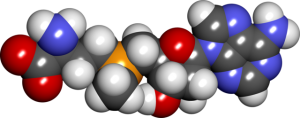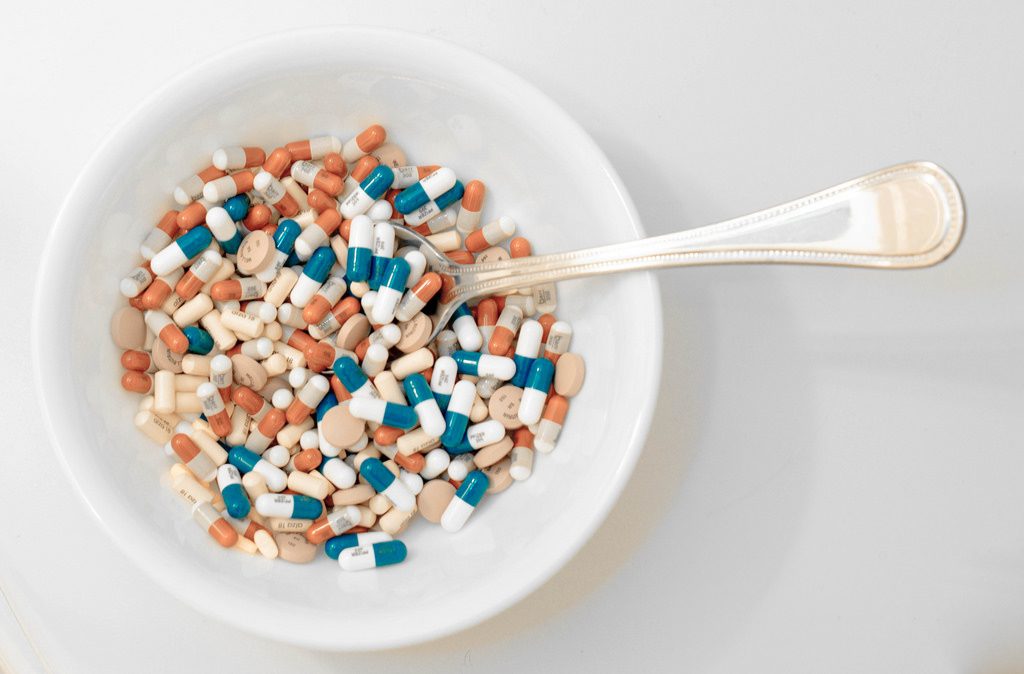Versatile molecule SAMe supports brain function via multiple mechanisms.

- Help with mood; its efficacy has been compared with popular synthetic drugs for emotional balance.
- Fight age-related neurodegenerative disorders such as Alzheimer’s and Parkinson’s.
- Aid in the formation of neurotransmitters through the process of methylation.
- Boosts brain glutathione levels, enhancing the brain’s antioxidant defenses.
Overview
Discovered in 1952 by American clinical researcher Giulio Cantoni, S-adenosyl methionine (SAM-e or simply SAMe) is a compound that is found in virtually every living cell of the human body, affecting their function, stability, and activity. SAMe is formed through the reaction between methionine and adenosine triphosphate, and serves as a methyl donor in a variety of essential processes, including the formation of neurotransmitters.1
In addition, it plays a role in the immune system, maintains cell membranes, and helps produce and break down a number of key brain chemicals such as serotonin, dopamine, and melatonin.
Clinically, SAMe is used for the treatment of osteoarthritis, fibromyalgia, liver disease, gallstones, and inflammatory bowel issues, and is also popular as an alternative therapy for depression.2

How SAMe Might Help the Brain
Aid in methylation and neurotransmitter formation
Methylation is a biochemical process wherein a methyl group is passed from one molecule to another. As a primary methyl donor in the central nervous system, SAMe donates methyl groups to a number of neurotransmitters, including serotonin, dopamine, and noradrenaline, in addition to fatty acids, phospholipids, and other chemicals.4
As one ages, methylation activity also gradually slows down, hence the theories that the decline in methylation also contributes to the aging process, as well as many associated disorders, such as Alzheimer’s.5
Boost the brain’s antioxidants and help fight free radicals
SAMe is important for the synthesis of glutathione, which is an antioxidant crucial for liver function. However, glutathione is also involved in the protection against reactive oxygen species within the brain. It protects the body from free radical-induced aging and oxidative stress that is often associated with several neurological disorders.
SAMe also supports the antioxidant power of the enzyme superoxide dismutase, which further increases its potency as a neuroprotective compound.6
SAMe levels are reportedly low in depressed patients, and even lower in those afflicted with Alzheimer’s.7 This severe reduction in SAMe—around 67 to 85% lower than normal brains—seriously compromises metabolism and brain function in patients with Alzheimer’s disease.
It may also explain why there is improved cognition in some Alzheimer’s patients following SAMe therapy.8
SAMe’s Proposed Brain Benefits
As a nootropic, SAMe is believed to improve mood and keep the brain healthy. Clinical research suggests that SAMe as a a supplement may be effective at combating depression, which gives solid evidence for its mood-boosting effects. Indirectly, this mood balancing activity may help with cognitive performance.
Furthermore, its support of the brain’s antioxidant defenses and role in the methylation process may safeguard the brain against neurological dysfunctions such as Alzheimer’s and Parkinson’s.9
Research
Animal Research
Animal studies of SAMe support its role as a neuroprotective compound. Specific findings in mice indicate that SAMe may:
- Decrease the accumulation of beta-amyloid plaque deposits — one of the central features of Alzheimer’s — by 80% after just one month of treatment11
- Restore brain levels of glutathione, a potent antioxidant compound12
- Inhibit tau phosphorylation, the process behind the accumulation of neurofibrillary tangles that are also characteristic of Alzheimer’s13
Human Research
Oral SAMe appears to help with depression even in treatment-resistant individuals
This clinical trial examined whether SAMe can be used in the treatment of major depression. Twenty patients with major depression, including 9 who had a prior history of being nonresponsive to antidepressants were given SAMe. The study found that SAMe supplementation resulted in substantial improvement, with 7 out of 11 non-treatment-resistant and 2 out of 9 treatment-resistant patients experiencing a full antidepressant effect.
- The researchers concluded that “Depressed patients as a group improved during theadministration of oral SAMe“14
SAMe has a rapid onset of effect in the treatment of depression
In this study, 195 patients with depression were given 400 mg of SAMe by injection or infusion for 15 days. Symptoms of depression subsided after seven and 15 days of treatment with no serious side effects.
- The researchers concluded that “Further studies with a double-blind design are needed to confirm this preliminary indication that SAMe is a relatively safe and fast-acting antidepressant“15
SAMe appears to be highly effective in helping with depression
This double-blind clinical trial explored the usefulness of SAMe for depression. Thirty patients with depression were given 45 mg injections of SAMe daily, which resulted in a beneficial effect on depression mood, suicidal tendencies, and mental performance after 4-6 days.
- The researchers concluded that “SAMe acts favourably and significantly on specific depressive symptoms“16
SAMe seems to play a key role in controlling mood
This double-blind study examined the link between blood levels of SAMe and major depressive disorder. Twenty-six patients were treated with either SAMe or the antidepressant desipramine for 4 weeks. Both groups saw significant improvement (50% drop in Hamilton Depression Score), but the most interesting finding was that both treatments resulted in increased blood SAMe levels.
- The researchers concluded that “This suggests that SAMe plays an important role in regulating mood“17
Nootropic Dosage
- The effective oral dosages of SAMe for depression are suggested to be 800-1600 mg daily
- It is recommended to start by taking two 400 mg tablets daily, with a 3rd or 4th tablet being added if symptoms of depression do not improve
- Commercial SAMe supplements provide doses of 200-400 mg
- For unknown reasons, SAMe is rarely found in stacks or complex nootropics
- SAMe is usually supplied in capsules, but may also be presented as pills
Supplements in Review Recommendation
- SAMe as S-adenosyl methionine 800 mg daily.
SAMe is involved in regulating mood and protecting the brain. Given the large amount of clinical research evidence, it’s safe to say that SAMe is an effective option for helping with the blues and other mood problems, and that it may help neurological disorders such as Alzheimer’s as well.
800 mg seems to be the minimum recommended dose. While it’s probably smart to buy a 400 mg dosage supplement first to see if it’s enough, SAMe doses of up to 1600 mg have been found to incur only minor side effects such as dry mouth and nausea.
References
Leave a Reply